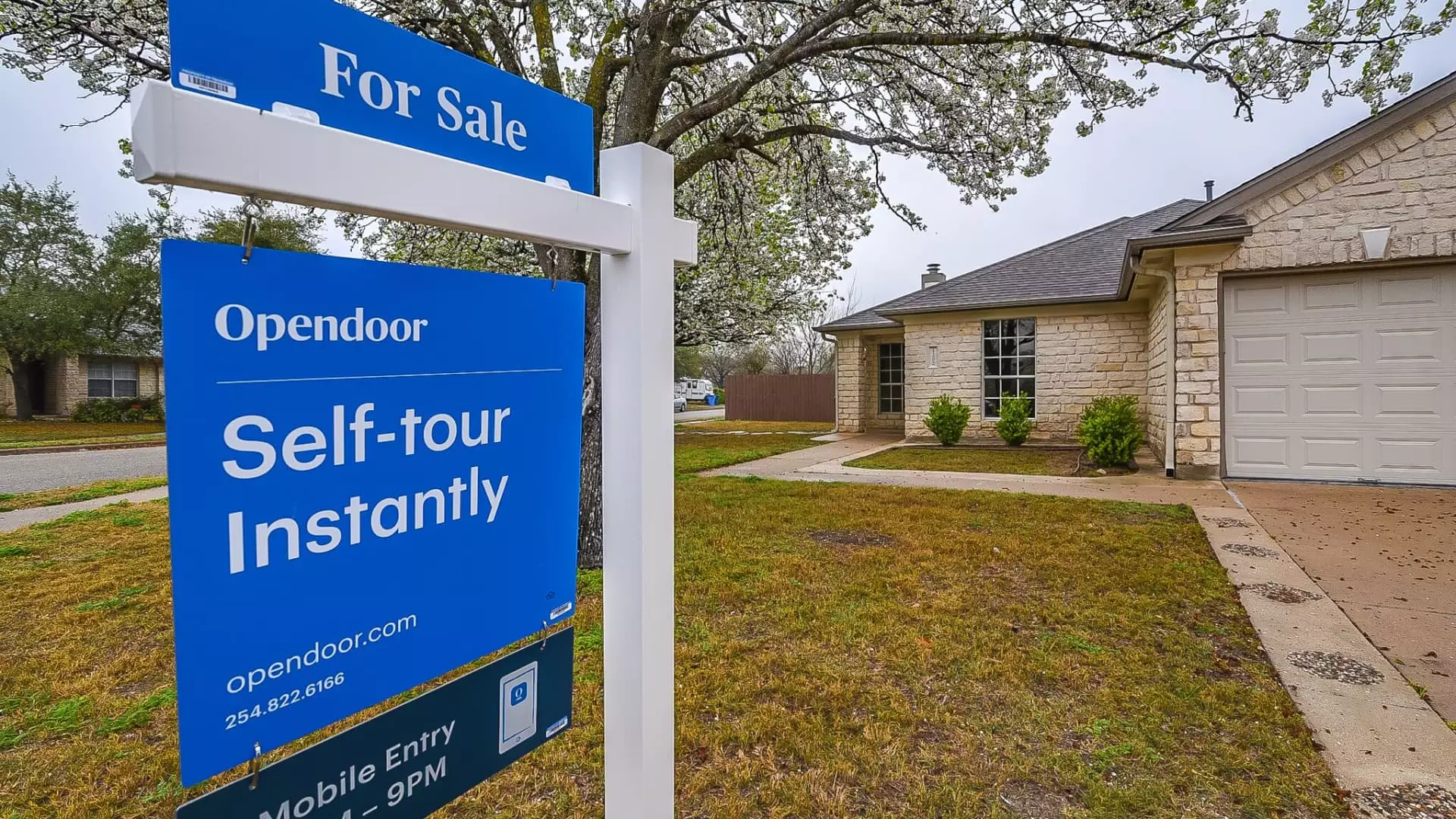For investors seeking a glimpse of hope in the turbulent real estate technology sector, Opendoor’s recent stock rally might seem like a beacon in the fog. Yet, beneath this shiny surface lies a fragile and uncertain foundation. The company’s sudden surge in share price, fueled by fleeting enthusiasm and high-profile speculation, distracts from the stark reality: that Opendoor remains fundamentally flawed and vulnerable. The attempt to spin a narrative of recovery, while superficially appealing, fails to address the core issues plaguing the company’s business model and the broader housing market.
A Flimsy Recovery Built on Speculation
Since its nadir—when shares plummeted to less than a dollar—Opendoor’s stock has experienced a dramatic bounce. Hedge fund managers and retail traders alike, lured by the promise of an imminent turnaround, drove the shares upward. Yet, this rally is built largely on bets rather than tangible improvements. Even now, data reveals that the company’s revenues are declining sharply, with forecasted earnings continuing a downward spiral. The optimism of a future where Opendoor might regain market dominance ignores the worsening macroeconomic environment, notably sky-high mortgage rates and declining buyer demand that threaten to drown any short-term gains.
Can a Shift in Strategy Salvage a Sinking Ship?
Carrie Wheeler’s announcement of pivoting away from aggressive iBuying toward a referral-based business model sounds promising on paper. But such a strategic shift is akin to rearranging deck chairs on a sinking ship. It’s a cosmetic change that masks the real issue: Opendoor’s core business is built on a fundamentally flawed premise operating in a collapsing market. The move to less capital-intensive revenues might ease liquidity pressures temporarily, but it does little to reverse the declining demand for homes. The housing market remains under siege from persistent high mortgage costs and economic uncertainty, which curtail affordable options for consumers—and, most critically, destroy profit prospects for companies like Opendoor.
The False Hope of Promising Optimism
The belief that a return to revenue growth is imminent is, at best, wishful thinking. Despite a marginally improved second-quarter revenue, the company’s outlook remains bleak. Forward-looking statements suggest expected revenues will continue to decline, and acquisition targets are shrinking. The ceaselessly deteriorating housing market environment dampens any optimism about a quick bounce back. Investors who pin their hopes on insiders’ optimistic forecasts neglect the deeper systemic issues: a shriveling demand for home transactions, thinning margins, and the inherent instability of relying on volatile real estate markets. The rally driven by high-profile bets, like those of Eric Jackson, seems more like a speculative gamble than a sign of genuine resurgence.
The Futility of False Reassurances
Opendoor’s leadership continues to spin narratives about “listening to feedback” and “expanding strategically,” but these hollow phrases serve only to distract from the company’s precarious position. The underlying challenges—the shrinking market, rising costs, and declining sales—remain unaddressed. The promise of a brighter future, with the company claiming it’s now “back in compliance,” disguises the reality that the company’s survival is entangled with external market forces beyond its control. Such phases of false hope do little to instill confidence beyond short-term trading spikes, which are ultimately unsustainable.
A Center-Left Realist’s Perspective
From a centrist liberal standpoint, the current excitement surrounding Opendoor exemplifies the dangerous allure of hype over substance. While innovation and strategic pivots are necessary, relying on a shaky market and speculative investor confidence risks further destabilization. It’s essential for responsible leadership to acknowledge the severity of market downturns and to prioritize transparent, sustainable growth over hollow narratives of recovery. The government and regulatory bodies should remain vigilant about speculative bubbles in the housing sector, which threaten to exacerbate economic inequality by inflating asset prices without underlying value. For now, Opendoor’s story is a cautionary tale of hope misplaced—and a reminder that true resilience comes from addressing systemic flaws, not chasing fleeting market sentiment.

